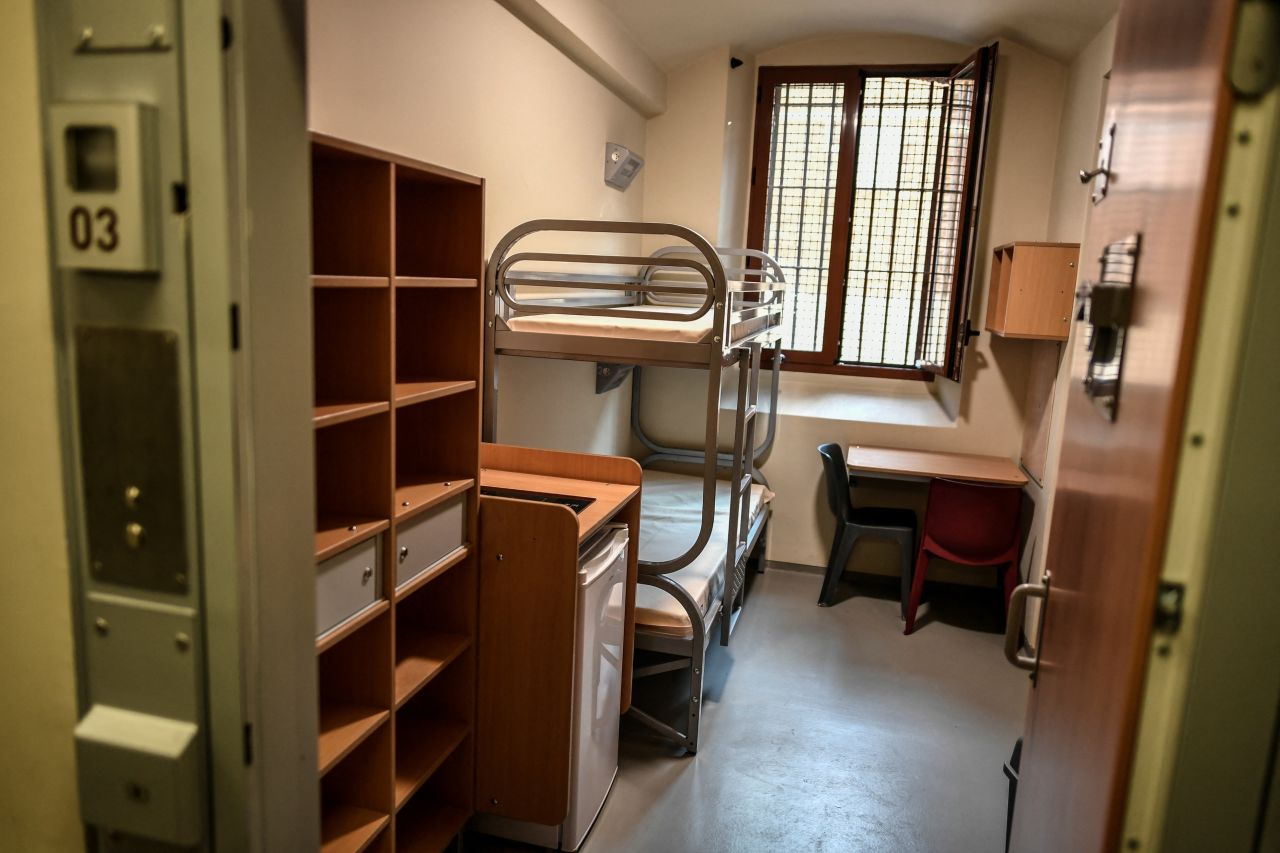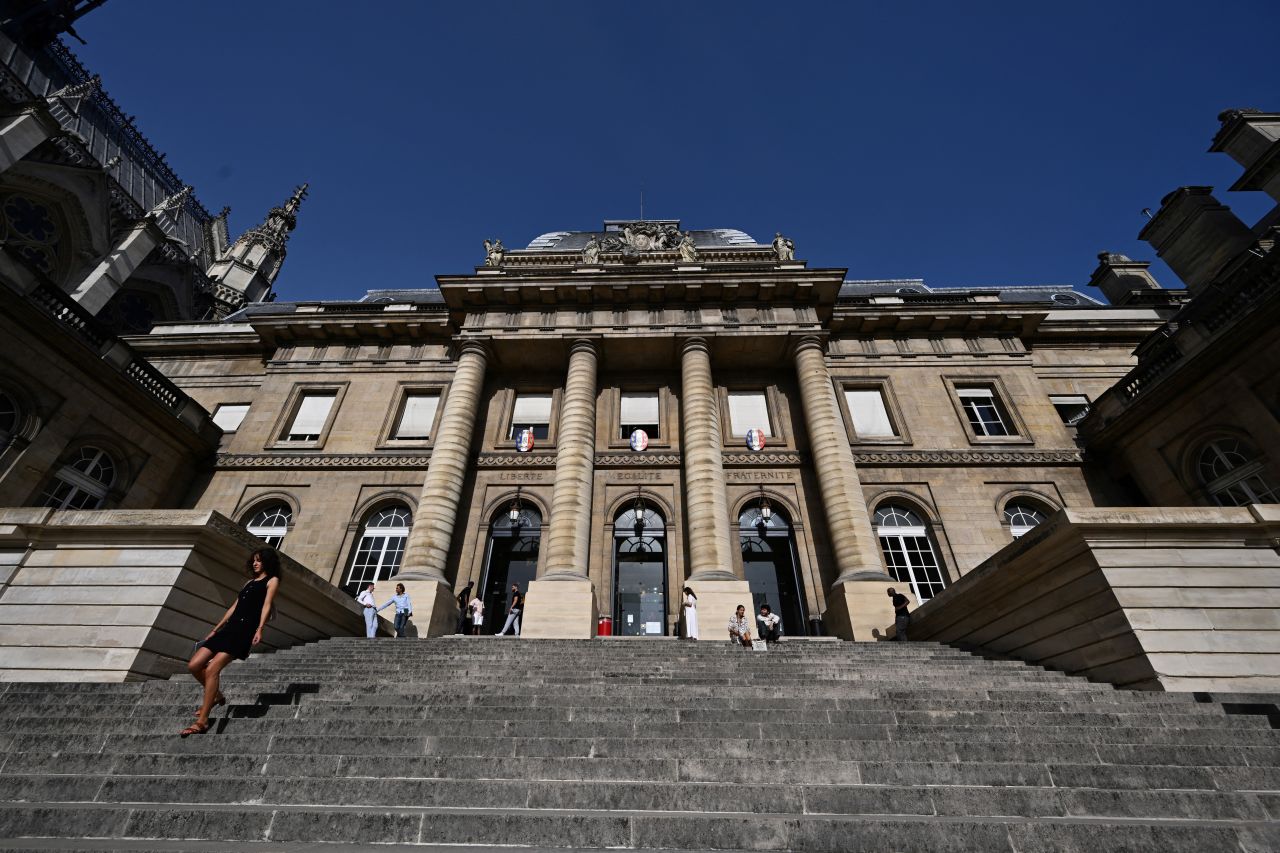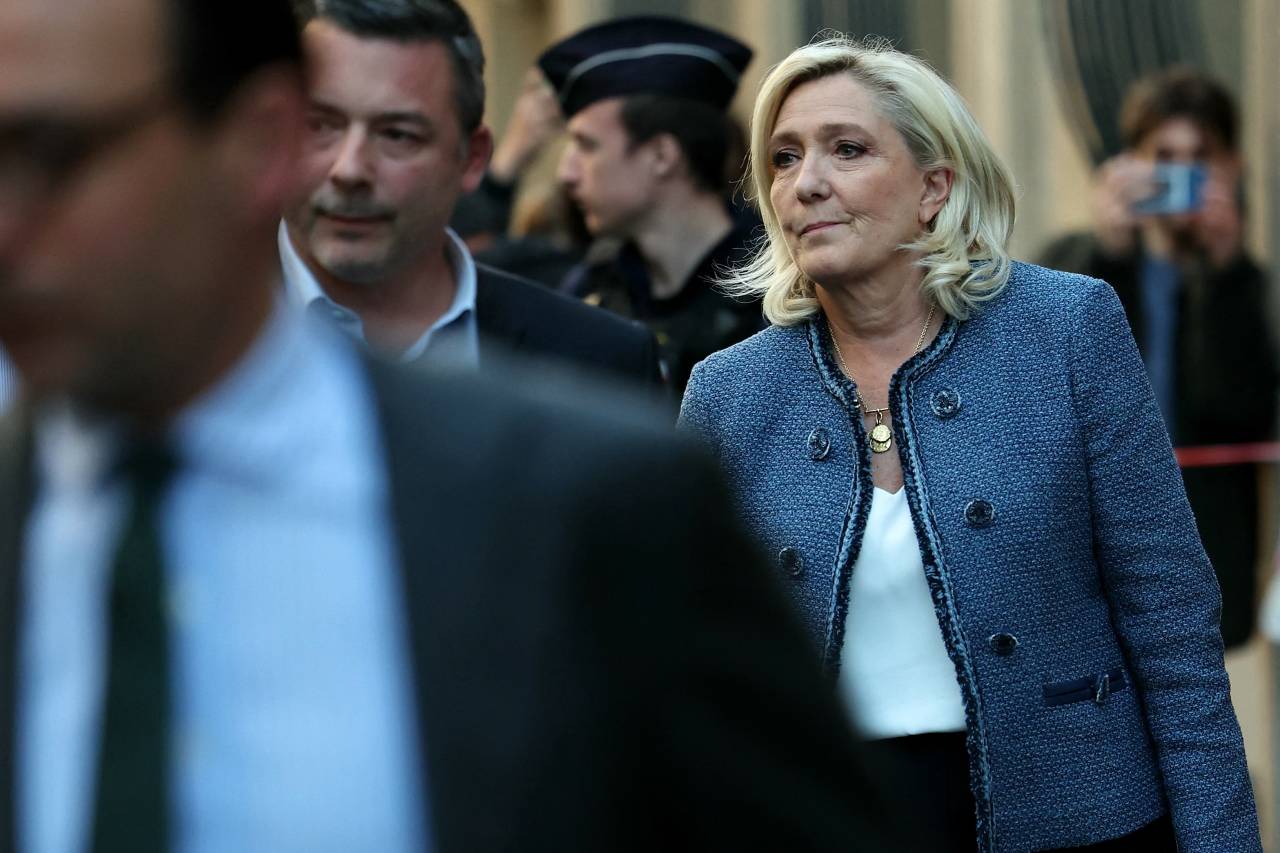In March, a court banned far-right leader Marine Le Pen from running for office for five years after finding her guilty of embezzling European Union funds. Then, on Tuesday, conservative Nicolas Sarkozy became the first former president to see the inside of a prison cell, after judges sentenced him to five years for conspiring to obtain campaign funds from Libyan strongman Moammar Gadhafi.
The rulings are the work of a judicial system that has long taken pride in being impervious to political pressure. In bringing landmark sentences against two of the country’s most influential politicians, however, judges have opened the door to a fraught debate over the limits of judicial authority.
Millions of Le Pen and Sarkozy supporters across the country now view the justice system as persecuting, rather than prosecuting, their leaders. Sarkozy’s punishment, supporters say, is an attempt to humiliate a former head of state whose abrasive style bucked convention. Le Pen’s supporters, meanwhile, say her court-ordered ban on running from office defies the will of voters by preventing her from entering the 2027 presidential race.

View Full Image
A 2019 photo shows a cell inside the prison where Sarkozy is serving his sentence in isolation from other inmates.
Judges say they were simply applying the law in their handling of each case, and polls show that a vast majority of the French public support them. These voters instead view anger at the verdicts as an assault on a sacrosanct principle of French democracy—that no one is above the law—dating all the way back to the French Revolution and the guillotining of King Louis XVI.
It’s a divide that mirrors the political and judicial fight now playing out in the U.S., where Democrats have accused President Trump of weaponizing the Justice Department to pursue his enemies. Trump, in turn, has said his political opponents have sought to use the courts to persecute him.
“Is this the last gasp of the executive in the face of the judiciary, or is this a new stage in our Western democracies, in the weakening of the judiciary?” said Alexandre Duval-Stalla, a law professor at L’Institut Catholique de Paris.
Le Pen and lawmakers in Sarkozy’s conservative party want to restrict judges’ ability to hand down sentences with “provisional” enforcement. That compels convicts to start serving prison terms and other penalties before the appeals process has been exhausted.
In France, convicts are presumed innocent as long as an appeal is pending. Le Pen and Sarkozy say that judges, in punishing them with provisional sentences, have denied them due process. A bill introduced in parliament by a lawmaker from Sarkozy’s party aims to launch an appeals process for a provisional sentence.
Legal scholars, however, say the recent criticism of provisional sentences ignores more than a decade of legislation and jurisprudence aimed at toughening up a legal system that can take years to reach a final verdict. Provisional enforcement applied to 57% of prison sentences handed down in 2024, up from 43% in 2020, according to the Justice Ministry.
That rise has occurred amid pressure from conservative and far-right politicians to harden a justice system they have often derided as too soft and sluggish. Sarkozy’s trial opened in January, but prosecutors began investigating allegations that led to the trial more than a decade ago. The investigation that led to Le Pen’s conviction also began a decade earlier.
“It’s not a grand conspiracy orchestrated by the system,” said Benjamin Morel, a professor of public law at Paris-Panthéon-Assas University. “The irony is that politicians consistently push for the provisional execution of sentences, but when it concerns Nicolas Sarkozy, they suddenly find issue with provisional enforcement and fault the judge.”
Le Pen has seized on Sarkozy’s incarceration in an attempt to make common cause with him and bridge the divide between her far-right supporters and the many establishment conservatives who see the former president as a hero.
After Sarkozy entered prison Tuesday, Le Pen reposted a video that she suggested was taken inside his prison with inmates hurling insults at him from across the cell block.
“I have no doubt that some people must be delighted by this situation. But I want to believe that millions of French people feel, like me, disgust,” Le Pen wrote on X on Wednesday.

View Full Image
The Palais de Justice courthouse in Paris.

View Full Image
Far-right leader Marine Le Pen has been barred from entering the 2027 presidential race after a court found her guilty of embezzlement.
Sarkozy is being held in the isolation ward of Paris-La Santé, a prison in the heart of the French capital. Two police officers have been assigned nearby for protection due to threats against Sarkozy, a spokeswoman for the Interior Ministry said.
The tensions have left President Emmanuel Macron struggling to thread the needle in his constitutional role as guarantor of judicial authority.
Macron invited Sarkozy to the Élysée Palace before his incarceration, only to find himself on the defensive days later as he fielded questions over why he hosted the former president.
“It’s normal, on a human level, to receive one of my predecessors in this context,” Macron said during a visit to Slovenia. He later found himself weighing in on Sarkozy’s criticism of provisional sentencing.
“I think this is a legitimate debate in a democracy, because everyone wants there to be avenues to appeal and recourse,” Macron said, adding that the debate should “take place amid calm and independently of specific cases.”
Write to Stacy Meichtry at Stacy.Meichtry@wsj.com and Noemie Bisserbe at noemie.bisserbe@wsj.com